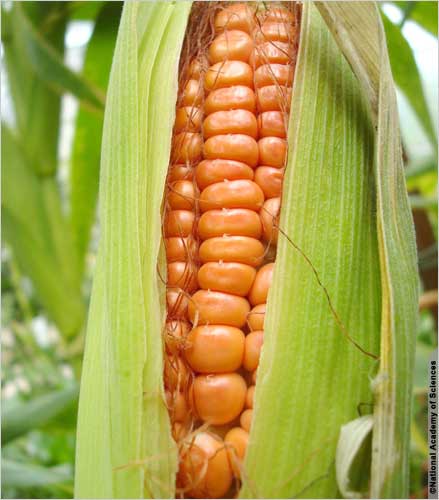The Bill & Melinda Gates Foundation has been roundly criticized in sustainable-ag circles for throwing its considerable girth behind a “New Green Revolution for Africa.”
According to critics (including me), the “green revolution” approach promotes high-tech, expensive solutions to Africa’s agriculture woes — ones more suited to the interests of a few agribusiness giants than millions of smallholder African farmers.
In a move that may be a response to such criticisms, the Gates Foundation recently announced it was awarding a $1.3 million, two-year grant to Worldwatch to look at low-cost, low-tech techniques for improving ag productivity in Africa. From the press release:
• Adding nitrogen-fixing plants into crop rotations as a low-cost solution for enriching soils and breaking weed and pest cycles;
• Overcoming freshwater shortages with rain harvesting, efficient irrigation, micro dams, and cover cropping;
• Strengthening local breeding capacity, including the use of farmer-run seed banks and genetic markers of important crop traits;
• Tapping international carbon-credit markets to reward farmers for enriching their soils and planting carbon-sequestering tree crops;
• Involving women farmers in decision-making at all levels.
Before we celebrate a new direction for the foundation, it should be noted that $1.3 million is a relatively miniscule sum for the nation’s biggest philanthropy. By contrast, the Gates Foundation (along with the Rockefeller Foundation) awarded $164 million to the Alliance for a New Green Revolution for Africa. (That discrepency reflects the ratio of the research cash the USDA plows into organic ag vs. industrial ag.)
Next week, I’ll be talking to people from Gates and Worldwatch to learn more about the new program.



